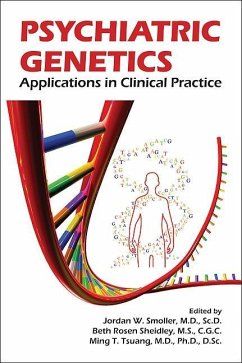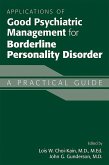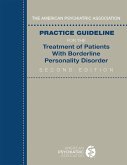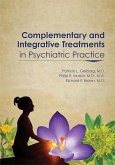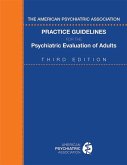As more patients seek information about family risks of psychiatric illness -- an interest likely to increase as gene-identification studies are publicized -- most psychiatrists agree it is their role to discuss these issues but admit they are ill-prepared to do so. Psychiatric Genetics addresses that need as the first book to focus on clinical applications of genetics in psychiatry. It covers issues involved in genetic counseling, the interpretation of familial and genetic information for clinical use, information regarding risks associated with specific psychiatric disorders, risk/benefit considerations related to medication use during pregnancy, and the ethical and social implications of psychiatric genetic knowledge and research -- including the prospects for genetic testing.
While other books have been written for the genetics community, this volume is addressed to practitioners: a clinically relevant resource that can help them understand the often bewildering flood of information about genetics -- information difficult to interpret, let alone integrate into practice -- and enable them to respond to patients' requests to predict the risk of recurrence of psychiatric illness or provide information about reproductive and pregnancy-related issues. Experts from psychiatry, genetic epidemiology, molecular genetics, genetic counseling, cognitive psychology, and ethics focus on issues that have received little attention elsewhere yet are of increasing importance to clinicians. Written at a level that assumes no particular expertise in genetics, the book features these immediately applicable benefits: ¿ It offers a framework for understanding and critically evaluating the psychiatric genetic research literature, enabling clinicians to better understand the meaning and limitations of genetic discoveries when patients raise questions about media reports. ¿ It provides a resource for clinicians who would like more information about the role and content of genetic counseling, outlining a typical counseling session while demonstrating how risks are estimated and discussed.¿ It summarizes genetic aspects of major psychiatric conditions -- from childhood-onset disorders through psychotic, mood, and anxiety disorders to dementia -- as well as neuropsychiatric manifestations of other genetic disorders.¿ It alerts clinicians to risk/benefit considerations related to medication use during pregnancy.¿ It covers the ethical, legal, and social implications of genetic research and counseling, illustrating the dilemmas that arise with new advances. Whether used as a clinical guide, reference, or ancillary text, this book sets the standard for the application of psychiatric genetic knowledge in everyday practice. Psychiatrists, mental health clinicians, and genetic counselors will find it an essential resource for all patient encounters in which genetic issues arise.
While other books have been written for the genetics community, this volume is addressed to practitioners: a clinically relevant resource that can help them understand the often bewildering flood of information about genetics -- information difficult to interpret, let alone integrate into practice -- and enable them to respond to patients' requests to predict the risk of recurrence of psychiatric illness or provide information about reproductive and pregnancy-related issues. Experts from psychiatry, genetic epidemiology, molecular genetics, genetic counseling, cognitive psychology, and ethics focus on issues that have received little attention elsewhere yet are of increasing importance to clinicians. Written at a level that assumes no particular expertise in genetics, the book features these immediately applicable benefits: ¿ It offers a framework for understanding and critically evaluating the psychiatric genetic research literature, enabling clinicians to better understand the meaning and limitations of genetic discoveries when patients raise questions about media reports. ¿ It provides a resource for clinicians who would like more information about the role and content of genetic counseling, outlining a typical counseling session while demonstrating how risks are estimated and discussed.¿ It summarizes genetic aspects of major psychiatric conditions -- from childhood-onset disorders through psychotic, mood, and anxiety disorders to dementia -- as well as neuropsychiatric manifestations of other genetic disorders.¿ It alerts clinicians to risk/benefit considerations related to medication use during pregnancy.¿ It covers the ethical, legal, and social implications of genetic research and counseling, illustrating the dilemmas that arise with new advances. Whether used as a clinical guide, reference, or ancillary text, this book sets the standard for the application of psychiatric genetic knowledge in everyday practice. Psychiatrists, mental health clinicians, and genetic counselors will find it an essential resource for all patient encounters in which genetic issues arise.
Dieser Download kann aus rechtlichen Gründen nur mit Rechnungsadresse in A, D ausgeliefert werden.

